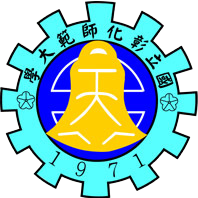SDG14.2.2 Sustainable fisheries (community outreach)-2021
NCUE’s Environmental Education Centre, Science Education Centre, and the Department of Biology are responsible for project outreach and funding support from government agencies to offer free educational programmes and outdoor activities related to fisheries, aquaculture, and tourism to local communities and junior and high school teachers and students. The programmes are reviewed based on their performance for continuous implementation strategy improvement. The goals are to (1) effectively improve the interests and awareness of local communities and junior and high school teachers and students in fisheries, aquaculture, and the related ecological tourism industry; and (2) cultivate future talent in related industries.
1. Environmental Education Centre and the Department of Biology: Fangyuan Reengineering USR Seed Programme and Programme for Engaging Fangyuan and Dacheng: Industrial and Environmental Sustainability for Changhua’s Twin Towns in 2020–2022
The programmes are covered by NCUE’s ‘Coastal Biological Resources Sustainable Development and Practices’ course jointly offered by the Environmental Education Centre and the Department of Biology of the College of Science. It targets NCUE students, communities, and business owners in the aquaculture and fisheries industries. The content covered is primarily professional knowledge on fisheries, aquaculture, and tourism and general knowledge of marine biodiversity conservation strategies and practices. The course contents include the following: ‘introduction to the biological, ecological, and educational resources of Taiwan’s coastal areas and sightseeing and aquaculture industries’; ‘water quality testing items, and theories and practices for coastal biological and ecological investigation’; ‘introduction to international and Taiwan’s marine biodiversity conservation strategies and practices, and introduction to Taiwan’s coastal aquaculture’; ‘introduction to economic fish and diseases, infected tissues, and bacteria slides observation’; ‘vibrio testing practices for water samples and aquatic products’; ‘preparation of diaphonised specimens’; ‘traceable aquatic products resume and wetland label’; ‘visits to environmentally-friendly fish farms and experiences’; ‘Fangyuan wetland and fish farms (traditional and new fish farms): on-site water quality and vibrio testing practices and services’; and ‘reporting and sharing topics related to environmentally-friendly industries’.
Programme activities FB fan page link https://www.facebook.com/NCUEUSR/
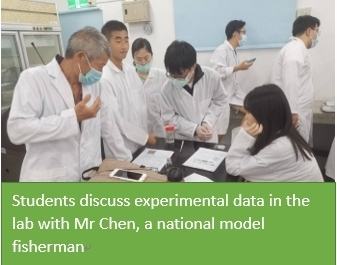
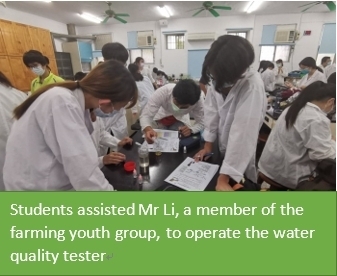
The Science Education Centre organised the event because the Budai wetlands in Chiayi County are important bird habitats with many aquaculture businesses. The event shifted the focus of Taiwan’s 12-year basic education curriculum’s quality-oriented education from science education to ecological education. Moreover, the lecturer presented the biological diversity of birds and demonstrated practices in outdoor teaching. Participants in the event also visited local businesses operated under the novel business model of ‘non-toxic aquaculture’.
Reference data: http://www.cyc.edu.tw/uploads/tadnews/file/nsn_61681_1.pdf
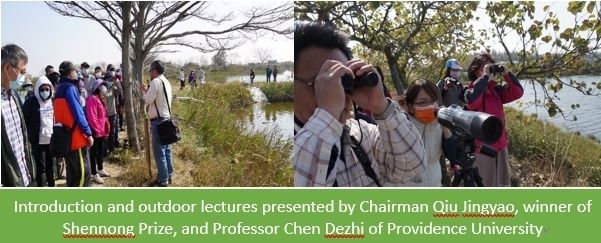
3. Department of Biology: Ministry of Science and Technology project/Carbon Dioxide Fixing Algae Tree: experimental module for teaching energy conservation and carbon reduction in junior and high schools and the ‘Programme for Kenting National Park/Investigation on Invasion and Control Strategy of Yellow Termites in Kenting National Park’
 3.1 The Ministry of Science and Technology project/Carbon Dioxide Fixing Algae Tree: experimental module for teaching energy conservation and carbon reduction in junior and high schools designs a module to make junior and high school students aware of common world concerns, such as environmental protection, and to pay attention to the earth’s ecosystem while facing the multiple impacts of Earth’s dwindling natural resources and the deterioration of the human living environment in the 21st century. Students are expected to acquire appropriate knowledge on and adopt the right attitudes towards energy as well as become familiar with environmental protection and evaluation. They should be able to use energy efficiently, conserve energy, and mitigate global warming by effective practices such as maintaining low carbon and using green energy to mitigate the impact on the Earth’s environment and ecology.
3.1 The Ministry of Science and Technology project/Carbon Dioxide Fixing Algae Tree: experimental module for teaching energy conservation and carbon reduction in junior and high schools designs a module to make junior and high school students aware of common world concerns, such as environmental protection, and to pay attention to the earth’s ecosystem while facing the multiple impacts of Earth’s dwindling natural resources and the deterioration of the human living environment in the 21st century. Students are expected to acquire appropriate knowledge on and adopt the right attitudes towards energy as well as become familiar with environmental protection and evaluation. They should be able to use energy efficiently, conserve energy, and mitigate global warming by effective practices such as maintaining low carbon and using green energy to mitigate the impact on the Earth’s environment and ecology.
For more information, see: https://esep.colife.org.tw/project/21e95680-a9b0-11e8-bd5e-2c44fd7df52c/107
3.2 ‘Programme for Kenting National Park/Investigation on Invasion and Control Strategy of Yellow Termites in Kenting National Park’
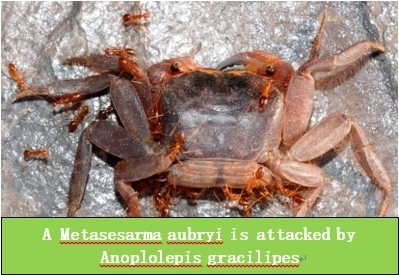
This programme involved assisting Kenting National Park to investigate the invasion status of Anoplolepis gracilipes (known as ‘yellow crazy ant’), one of the most harmful invasive species in the world, on the land crab distribution concentration areas (spring ports in Back Bay, Banana Bay, and Sand Island). Cooperation with Taiwan’s land crab expert, Professor Liu Hung-Chang, enabled data analysis of the population size of young female crabs during the land crab’s breeding season. The results show that the reduced population size of the land crab is closely related to the invasion of Anoplolepis gracilipes, which poses a considerable impact on the survival of the native land crab population in Hengchun Peninsula. In the past, most reports about the negative impact of the invasion of Anoplolepis gracilipes on land crab populations have been published from India and Pacific island countries, but this study is the first to find that Anoplolepis gracilipes are threatening land crab populations in East Asia. This study not only highlights the importance of prevention and control of Anoplolepis gracilipes, but also provides some suggestions on prevention and control. In addition to traditional chemical control, habitat restoration and removal of potential nesting sites for Anoplolepis gracilipes may play a role in control efforts. This may increase the habitat suitable for land crabs and hinder the establishment of Anoplolepis gracilipes. Considering the impact of Anoplolepis gracilipes on the ecological environment, ant control must be implemented continuously to reduce the probability of land crabs being ‘killed’ and maintain the biodiversity of Kenting National Park.
For more information, see:
https://www.facebook.com/NCUEEEC/videos/a.1053897732014001/402422844606560
https://www.facebook.com/NCUEEEC/photos/a.1053897732014001/1053898902013884
